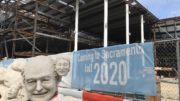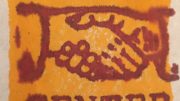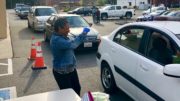Sacramento Regional Transit’s new routes aren’t an improvement
By Steve Miller
Sacramento Regional Transit has announced “service improvements” to its bus network, starting Sept. 8. At its Aug. 12 meeting, the RT board authorized as many as seven free ride days to promote the new network, with the first four to be Sept. 8-11.
But as a longtime resident of East Sacramento, I find it very difficult to label these service changes as an improvement over the current system.
The main route in my area is the 30 bus on J Street. Currently, it runs every 15 minutes during the day on weekdays, every half hour on Saturdays and every hour on Sundays. When I moved to the area in 1984, it ran every 10 minutes on weekdays, every 15 minutes on Saturdays and every 20 minutes on Sundays. In those days, it also ran later in the evening and on weekends than it does now.
Under the new route system, the 30 route would be combined with the 38 from downtown to 39th Street, with the combined service running every 15 minutes. Beyond 39th Street, the 30 would only run every half hour, and hourly on weekends. This is a 50 percent cut on a route that provides direct service between Sacramento State and downtown. Service on the 38 bus, which serves the outer stretch of Broadway, would be similarly cut in half.
Now, the 34 bus serves E and F streets in Midtown and McKinley Park, then goes through the northern section of East Sacramento before arriving at Sacramento State and then River Park. It runs hourly with no evening or weekend service. Under the proposal, this route would be renumbered as 138 and operate only during peak hours.
Presumably, the resources that currently support the 30, 34 and 38 routes would be diverted to other parts of Sacramento. This seems like a bad idea. The people most likely to use public transit are those who live in the most densely populated areas, such as Midtown and East Sacramento. Cutting the frequency of service will likely alienate riders, who can drive, bike, use Uber or Lyft or even walk.
On the other hand, those who live in less densely populated suburbs are more likely to use RT only during rush hour. They are the most expensive riders to serve because of the need for additional equipment and drivers during peak hours.

I recently visited Portland, a city whose metropolitan population is only slightly larger than Sacramento’s. Portland has a light rail system that has five lines serving a large portion of the metro area, with trains running every 15 minutes. It has two streetcar lines (similar to the proposed streetcar in Sacramento) that provide service every 15 to 20 minutes. Portland also has an extensive bus network, with many bus routes (even crosstown buses) operating every 15 minutes, with service into the late evening hours and two routes that run all night.
Before I lived in Sacramento, I lived in San Diego. In the 1970s, San Diego Transit was not very good, with most routes having 30-minute headways. Today, San Diego has a much improved system, with three light-rail lines and most urban bus routes operating on 15-minute headways.
Why can’t we have good public transit in Sacramento, like they have in Portland and San Diego?





Be the first to comment on "Essay: Getting on the bus"